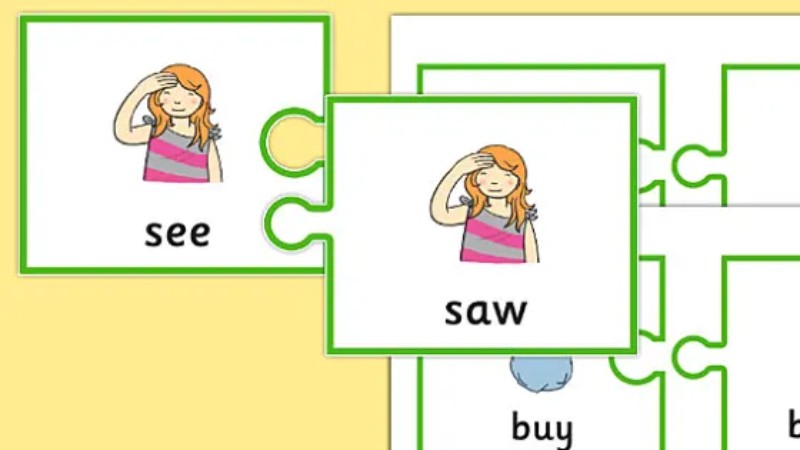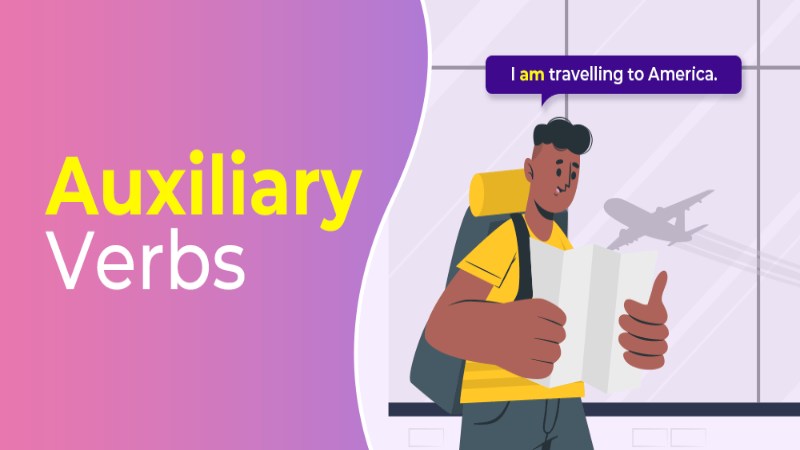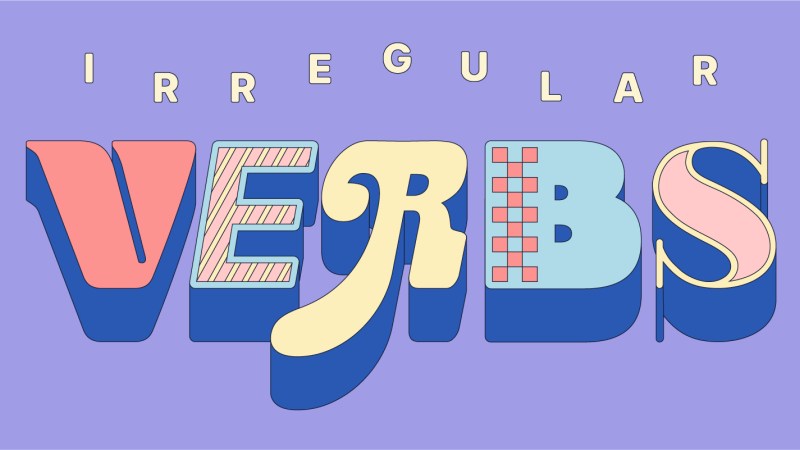
一般过去时规则动词的变化
要使句子成为一般过去时通常要在规则动词后面加上ed。
They often watch a film on Sunday. ⇒ They watched a film last Sunday. 上星期日他们看了电影。
She lives in London. ⇒ She lived in London in the 80s. 她在80年代住在伦敦。
规则动词的拼写
| 不定式 | 过去式 | 拼字 |
| watch play | watched played | 通常加ed |
| like arrive | liked arrived | -e后面加-d |
| Study try | studied tried | 在子音加y之后去 -y加 -ied |
| shop rob | stopped robbed | 子音加母音加子音,变成双子音加 -ed |
什么时候要双辅音?
当动词结束于辅音 + 元音 + 辅音时,则要变成双辅音。这个规则在当动词只有一个音节时绝对成立。
- stop ⇒ stopped
- plan ⇒ planned
- shop ⇒ shopped
- rob ⇒ robbed.
若动词为两个音节,只有在当重音出现在最后一个音节时才需要变成双辅音。
- reFER ⇒ referred
- preFER ⇒ preferred
- reGRET ⇒ regretted
但当重音不是在最后一个音节时便不需要变成双辅音。
- VIsit ⇒ visited
- ANswer ⇒ answered.
一般过去时不规则动词变化
有些动词为不规则动词所以要变成一般过去时不是加 -ed。
英文中常见的不规则动词:
| be | was/were | They were at school yesterday. | 他们昨天在学校。 |
| begin | began | At the end of the scene, we began to cry. | 在场景结束时,我们开始哭泣。 |
| break | broke | I broke my arm in an accident. | 我在一次事故中摔断了手臂。 |
| bring | brought | Who brought you here? | 谁把你带到这里来的? |
| buy | bought | We bought a new car last week. | 我们上周买了一辆新车。 |
| do | did | I did some shopping. | 我做了一些购物。 |
| drink | drank | He drank a lot of water after the match. | 赛后他喝了很多水。 |
| drive | drove | We drove to the airport. | 我们驱车前往机场。 |
| eat | ate | We ate paella by the beach. | 我们在海边吃了海鲜饭。 |
| find | found | I finally found the keys. | 我终于找到了钥匙。 |
| fly | flew | We flew to Hongkong last Spring. | 我们去年春天飞往香港。 |
| forget | forgot | I forgot the keys in the hourse. | 我忘记了小时的钥匙。 |
| get | got | She got a lot of gifts for her birthday. | 她的生日收到了很多礼物。 |
| give | gave | I was cold and he gave me a jacket. | 我很冷,他给了我一件夹克。 |
| go | went | I went to work by bus yesterday. | 我昨天乘公共汽车去上班。 |
| have | had | I had a lot of toys as a child. | 我小时候有很多玩具。 |
| know | knew | We knew that he was special immediately. | 我们立刻就知道他很特别。 |
| lose | lost | He lost his wallet at the bus station. | 他在公交车站丢了钱包。 |
| make | made | They made a cake for the party. | 他们为聚会做了一个蛋糕。 |
| meet | met | I met my wife at a wedding. | 我在婚礼上认识了我的妻子。 |
| pay | paid | She paid for the drinks. | 她付了酒钱。 |
| put | put | I put the ice cream in the freezer. | 我把冰淇淋放在冰箱里。 |
| read | read | I read an interesting article yesterday. | 我昨天读了一篇有趣的文章。 |
| run | ran | When the fire started, we ran. | 火开始时,我们跑了。 |
| say | said | She said something in his ear. | 她在他耳边说了些什么。 |
| see | saw | We saw a very strange man in the street. | 我们在街上看到一个很奇怪的人。 |
| sell | sold | He sold me his old car. | 他把他的旧车卖给了我。 |
| send | sent | People sent lots of letters in the past. | 过去人们寄过很多信。 |
| sing | sang | Everybody sang “Happy Birthday” to her. | 每个人都为她唱“生日快乐”。 |
| sit | sat | We sat on the sand and looked at the sea. | 我们坐在沙滩上,看着大海。 |
| sleep | slept | I only slept three hours last night. | 我昨晚只睡了三个小时。 |
| speak | spoke | We spoke to our kid’s teacher last week. | 上周我们和孩子的老师谈过了。 |
| spend | spent | We spent a lot of money during our last trip. | 我们在上次旅行中花了很多钱。 |
| swim | swam | He swam in the sea in June. | 六月,他在海里游泳。 |
| take | took | Somebody took my things. | 有人拿走了我的东西。 |
| teach | taught | She taught me how to play the drums. | 她教我如何打鼓。 |
| tell | told | I told him to go home. | 我告诉他回家。 |
| think | thought | We thought you were dead. | 我们以为你死了。 |
| understand | understood | I understood her decision. | 我理解她的决定。 |
| wear | wore | She wore a beautiful red dress at the patry. | 她在帕特里穿着一件漂亮的红色连衣裙。 |
| win | won | They won the match. | 他们赢得了比赛。 |
| write | wrote | I wrote a letter to the manager. | 我给经理写了一封信。 |
一般过去时的使用
表示过去完成的动作或状态
一般过去时可以用来说明过去完成的动作或状态,我们通常会加上过去时间来表达: yesterday, yesterday afternoon, last night, last week, three days ago, four years ago, 等。
She answered the question yesterday. 她昨天回答了问题。
They were a good team. 他们是一个好团队。
过去重复的动作
一般过去时可以形容在过去习惯或重复的动作,但现在已经没有继续。通常会加上副词或频率来表达(often, always, every day等)。
When I was a child, I went to the cram school every day. 在小时候,我每天都会去补习班。
In school, I often went jogging in the morning. 在学校时,我通常会在早上去慢跑。
规则和不规则动词 – 练习题



Comments